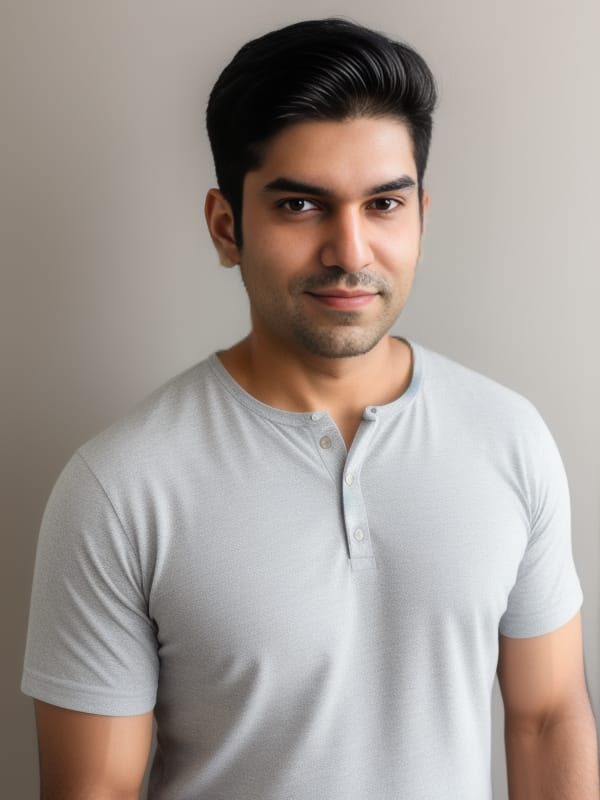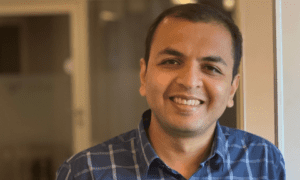Vancouver, CA — July 2022
In a world increasingly shaped by data, strategy, and innovation, Arjun Chaudhary stands out—not just for the complexity of the projects he manages, but for the depth of independent research he pursues in project management and finance. A seasoned project manager with over 13 years of experience across fashion retail, pharmaceuticals, banking, and big tech, Chaudhary is redefining what it means to be both a practitioner and a knowledge creator.
“I’ve always believed that solving real-world problems is a form of research,” says Chaudhary, who served as a Planning Manager and Project Manager at Oak + Fort in Vancouver, British Columbia. “If you’re building frameworks, optimizing systems, or designing financial planning models, you’re contributing new knowledge—even if it’s outside academia.”
That blend of execution and inquiry is central to Chaudhary’s professional identity. With an MBA in Finance from Lancaster University and PMP and CBAP certifications under his belt, he leads complex transformations in human capital and financial planning systems. Yet beyond his daily duties, he constantly reflects on methodologies, documents lessons learned, and refines practices—often generating insights that inform broader industry discussions. His work has even led to a peer-reviewed publication on loan default risk prediction, which has been acknowledged in financial analytics circles for its practical relevance.
Research in the Real World
“I make it a point to document the project lifecycle,” he says. “From stakeholder mapping to risk matrices, my documentation turns into templates or white papers that others can adopt. That’s real-world research.”
And he’s not exaggerating. During his tenure at Oak + Fort, a Vancouver-based fashion retailer, Chaudhary orchestrated a range of transformative initiatives—from data migration to ERP (SAP HANA S/4 and Netsuite) to implementing Hyperion-based forecasting and 3PL integrations. He developed scalable project models for warehouse automation and supply chain digitization—frameworks that later informed internal training and external benchmarking efforts.
His work at previous company was similarly rigorous. There, he managed M&A processes, revenue planning, and quota optimization across global markets. “We had to build financial models that factored in regulatory constraints, regional demand, and variable cost structures,” he notes. “These models weren’t just spreadsheets—they were adaptive decision tools.”
Independent, Yet Impactful
What separates Chaudhary from the average corporate project manager is his ability to independently analyze and publish process innovations. He maintains and contributes to peer-reviewed trade publications, often addressing challenges in adaptive planning, cross-border ERP integrations, and KPI-based portfolio management.
His writings synthesize observations from the field—on why some Agile transformations fail, how data governance impacts planning cycles, or the hidden costs of change fatigue. While not formally embedded in academia, his contributions resonate with researchers and practitioners alike.
“As project managers, we’re often the first to test new tools and theories,” he says. “Whether it’s a new risk tracking model or a stakeholder engagement framework, we can add to the body of knowledge if we take the time to reflect and share.”
Data-Driven and Globally Experienced
Born in India and currently based in Vancouver, Chaudhary’s career spans continents and sectors. From government projects in Ottawa to financial analytics at toconsulting roles at and , he has built a multidisciplinary perspective. His technical fluency—ranging from Tableau and Power BI to Snowflake and SQL—adds a data science edge to his management approach.
“In my other previous roles I led regulatory and business model analysis; and implemented demand planning and warehouse systems. Every role added a layer to how I understand uncertainty, ROI, and strategic alignment,” he reflects.
Looking Ahead: Research for the Next Generation
Chaudhary believes that the future of project management lies in hybrid roles—where execution is guided by inquiry, and every deliverable is a case study in performance, adaptability, and stakeholder value.
He is currently developing a framework to measure the intangible outcomes of digital transformation projects, including employee adaptability, data fluency, and system agility. “We track budget and timeline, but what about resilience? How ready are teams to absorb disruption? That’s where project science is headed.”
He’s also mentoring young professionals and collaborating with research collectives that bridge industry and academia.
“In a data-first, risk-heavy world, the best project managers will also be researchers. And the best researchers will be those who’ve lived the problem,” he concludes.
Among Arjun Chaudhary’s notable contributions is his peer-reviewed research article titled ‘Utilizing Ensemble Learning Models to Forecast Loan Default Risk’, published in Volume 6, Issue 12 (2021). This study applied ensemble machine learning methods such as Random Forest, XGBoost, and a Stacking Ensemble to financial datasets and achieved an impressive accuracy of 88.4% with a ROC-AUC of 0.913. The research is recognized in financial analytics circles for its practical application in enhancing loan default prediction systems. It highlights how real-world project insights, when methodically analyzed, can contribute meaningfully to academic and professional discourses alike.



































